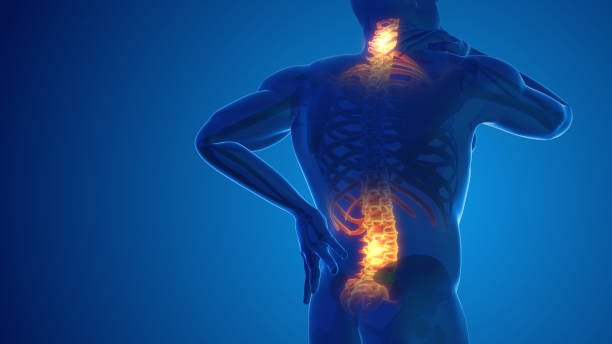Back pain is a common issue that affects millions of people, making daily activities difficult. Whether caused by poor posture, lack of movement, or underlying health conditions, it can significantly impact your quality of life. Fortunately, natural methods can help manage pain and improve mobility. This article explores effective ways of Back Pain Management to reduce back pain without relying on medications.
Understanding Back Pain
Before looking at solutions, it’s important to understand what causes back pain. Some common factors include:
- Poor posture – Slouching while sitting or standing puts pressure on the spine.
- Lack of physical activity – Weak muscles provide less support for the back.
- Incorrect lifting techniques – Bending incorrectly when lifting can lead to injuries.
- Obesity – Excess weight strains the lower back.
- Medical conditions – Issues like arthritis, herniated discs, and osteoporosis contribute to chronic pain.
By identifying the cause of your discomfort, you can take steps toward relief.
Gentle Exercises for Pain Relief
Regular movement can strengthen muscles and reduce stiffness. Try these simple exercises:
| Exercise | How to Do It | Frequency |
|---|---|---|
| Knee-to-Chest Stretch | Lie on your back, pull one knee toward your chest, hold, then switch. | Twice daily |
| Cat-Cow Stretch | Get on all fours, arch your back, then lower your belly. | Daily |
| Bridges | Lie down, lift your hips, hold for a few seconds, then lower. | 3-4 times a week |
| Pelvic Tilt | Lie on your back, tighten your stomach, and tilt your pelvis upward. | Morning & evening |
These exercises help improve flexibility and reduce tension in the lower back.
You may also read: Chiropractor in Wentworth Point: Your Guide to Better Health and Well-Being
Posture Corrections for Long-Term Relief
Maintaining good posture can prevent and reduce back pain. Follow these simple posture tips:
- When sitting: Keep your back straight, feet flat on the floor, and knees at a 90-degree angle.
- When standing: Distribute weight evenly on both feet and keep shoulders relaxed.
- When lifting: Bend your knees and lift with your legs instead of your back.
- When sleeping: Use a firm mattress and sleep on your side with a pillow between your knees.
Making these small adjustments can help reduce strain on the spine.
Natural Remedies for Pain Relief
Using natural treatments can help ease discomfort and improve mobility. Consider these methods:
| Remedy | How It Helps |
| Heat Therapy | Applying a warm compress or heating pad relaxes muscles and increases blood flow. |
| Cold Therapy | Using an ice pack reduces inflammation and numbs pain. |
| Massage | Gently massaging the back relieves muscle tension. |
| Epsom Salt Bath | A warm bath with Epsom salt soothes sore muscles. |
| Essential Oils | Oils like lavender and peppermint provide natural pain relief. |
These simple remedies can be used daily to help manage discomfort.
Healthy Lifestyle Changes
Making small adjustments to your daily routine can help prevent future back pain. Try these habits:
- Stay active – Engage in low-impact activities like walking or swimming.
- Maintain a healthy weight – Excess weight puts stress on the back.
- Stay hydrated – Drinking water keeps spinal discs healthy.
- Use supportive footwear – Good shoes help maintain proper alignment.
- Practice relaxation techniques – Stress can cause muscle tension, so activities like deep breathing or meditation may help.
When to Seek Medical Help
If natural remedies do not provide relief, it may be time to see a doctor. Seek professional advice if:
- Pain lasts for more than a few weeks.
- Pain worsens instead of improving.
- There is numbness, tingling, or weakness in the legs.
- Difficulty standing or walking occurs.
A doctor may recommend physical therapy, chiropractic care, or additional treatment options.
Conclusion
Back pain management does not always require medication. By incorporating gentle exercises, correcting posture, using natural remedies, and making small lifestyle changes, you can reduce discomfort and improve mobility. Stay consistent with these habits, and you’ll experience long-term relief and a healthier back.
